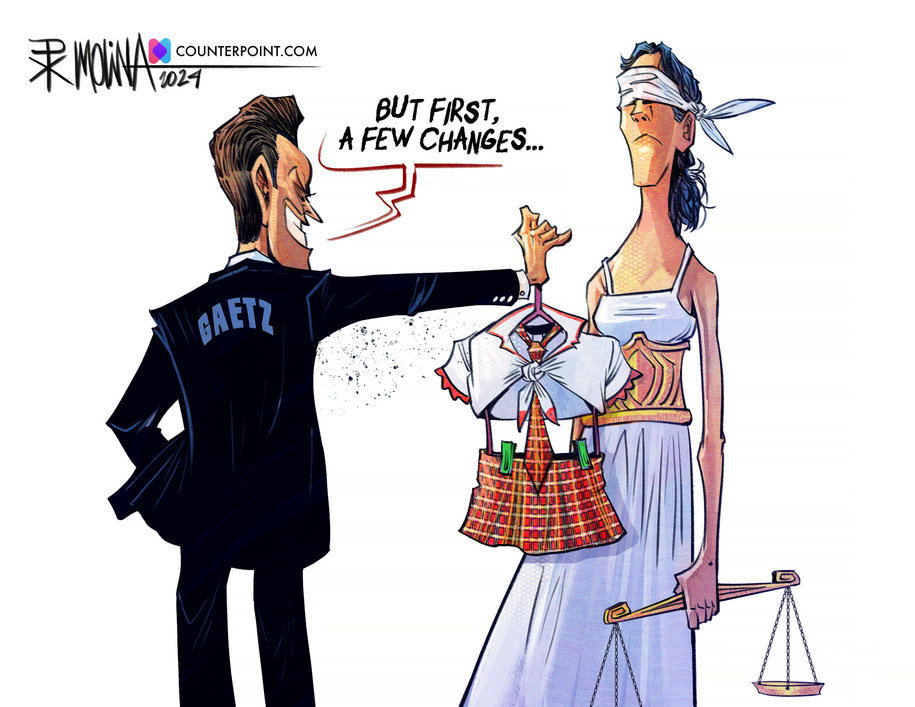Listen up, meatsacks! Not sure how to write this article, but I have the concept of a plan. I know, let’s have ChatGPT write the story in the style of Wonkette about how Nevada is going to use Google’s AI to help decide who will get unemployment benefits, to sort through their backlog of unemployment cases since COVID.
Hold onto your gaming chips, Nevada, because your unemployment appeals process is about to get a digital makeover that’s more high-tech than a self-driving slot machine. Nevada has announced that it will soon be deploying a generative AI system from Google to dive into the world of unemployment appeals. This thing will parse through every “um” and “uh,” every tear-soaked plea, then spit out a recommendation with all the warmth of a robot trying to pass off as a human on Tinder. Welcome to the future of bureaucracy!
Not great, not bad. Kind of tiresome though, and definitely try-too-hard.
How about in the style of Barbara Cartland, explain how the retrieval-augmented generation AI model they’re using supplies incorrect or misleading answers to questions between 17 and 33 percent of the time, and the best-performing model, Google’s Gemini 1.5 Pro, is still only right 76 percent of the time?
In the desert’s embrace, where once there was uncertainty, there now blossoms a new dawn of possibility. But as with any tale of grandeur, there is an element of drama that belies the initial enchantment. For while these models offer the allure of swiftness and efficiency, they come with a nuanced narrative of their own. Recent revelations have unveiled a disconcerting truth: these models, despite their impressive façade, supply answers that are incorrect or misleading between 17 and 33 percent of the time, and the best are are only right 76 percent of the time. This revelation, dear readers, is akin to discovering that a once-revered suitor is not quite the paragon of virtue he appeared to be.
That AI forgot bosoms entirely. How about some haikus about how AI models are so complex that when the system makes all those errors, the humans can be unable to find them and figure out what went wrong?
Silent code unspools,
Decisions made by machine—
Errors hard to trace.Complexity veils,
The path of AI’s intent—
Truths are hard to find.A snapshot elusive,
Shadows in the digital mist—
Whence the error comes?Code’s silent dance hides,
Where decisions went astray—
A maze without maps.Decisions drift by,
In circuits’ tangled whispers—
Origins are lost.
And in the style of Dr. Seuss, explain how if robots make mistakes that much of the time, and no one can trace where the mistakes are, employees at the Nevada Department of Employment, Training, and Rehabilitation could end up spending more time trying to unspool the mistakes made by the AI than if they never used it at all?
In the land of computers, so shiny and bright,
Where machines rule the day and all through the night,
There’s a marvelous gadget, a wonderful sight—
A robot named Robby, who does things just right!“Oh, no need for humans!” the boss said with glee,
“We’ve AI and robots, as smart as can be!”
“Why hire a worker? Why bother with fuss?
We’ll let robots do everything—no need to discuss!”So off went the humans, they packed up and left,
And Robby the Robot was feeling quite deft.
He churned out the data, he sorted the files,
With blinking green eyes and mechanical smiles.But the time that they spend fixing up what went wrong,
Ends up being far longer, and all of it’s long.
If robots make errors and humans can’t trace,
The time for corrections just races apace.Thus, here’s the big lesson, the moral we see,
Mix robots and people in harmony!
For while robots are grand, they sometimes go astray,
It’s the human touch that keeps errors at bay.
But the human touch is expensive! Especially for Nevada, which has the highest unemployment rate in the country at 5.4 percent (after Puerto Rico and DC), and has a big backlog because COVID shut down so much of the hospitality industry.
As is life for the people whose unemployment claims are incorrectly rejected, who then can’t pay bills for an indeterminate amount of time all because of some hallucinating robot. How about some Yates?
The hours stretch long, a desert’s cruel expanse,
Where hope, like distant stars, seems faint and frail,
For no divine or mortal hand can chance,
To mend the fractured weave where shadows sail.
Welp, can’t beat that. Nothing left to do but have the robot write about how now I should file for unemployment, because I will probably be fired and replaced by AI. Take it away, Bot Easton Ellis!
The city’s relentless pulse continues unabated outside. The neon lights blink with the same mechanical indifference as the AI that displaced me. I sit in my apartment, surrounded by the trappings of a life that feels increasingly foreign. The sounds of the city — once a vibrant backdrop to my existence — now seem like the soundtrack to my personal decline.
Ain’t it the truth, Ro-Bret, ain’t it the truth.









